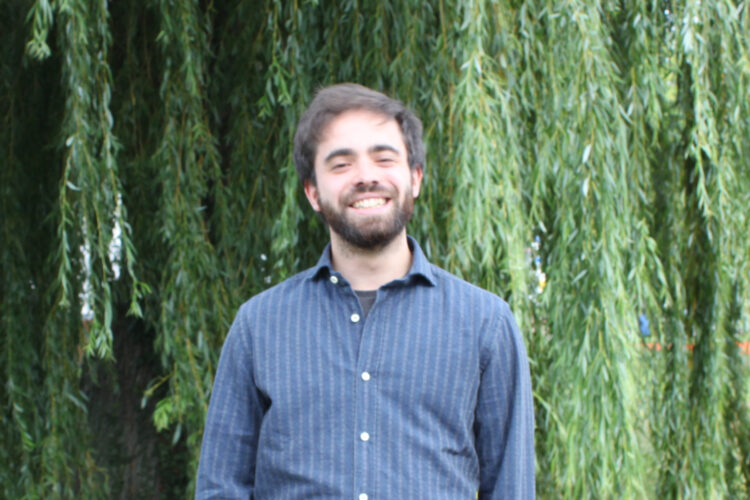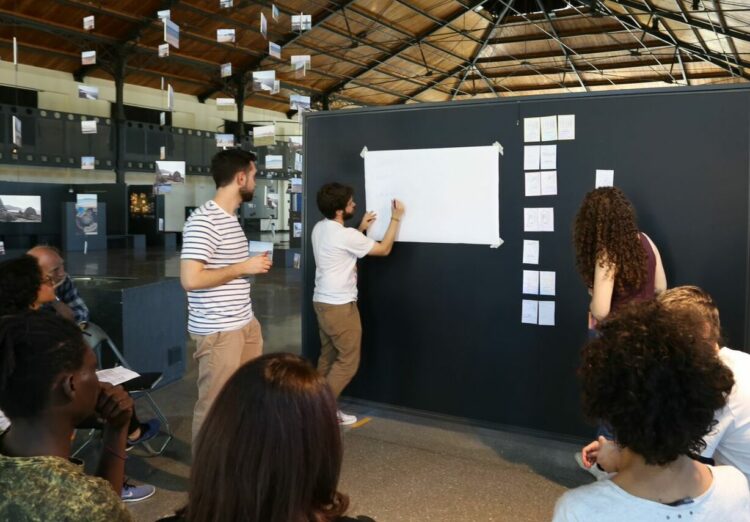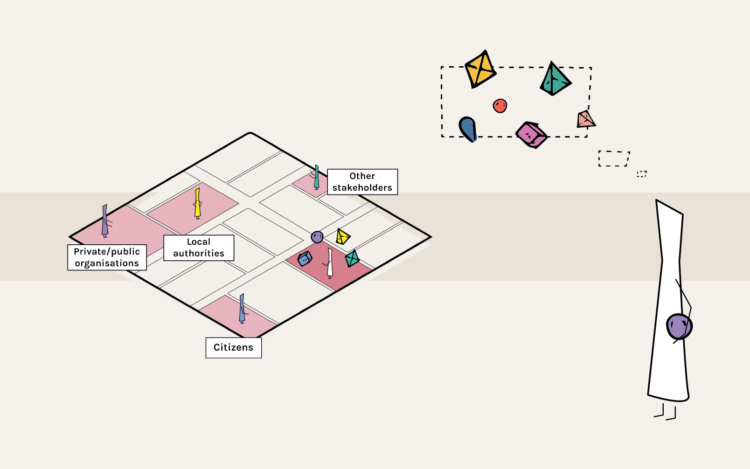Building capacity, lessons from participation and reflection
Introducing Alberto
Alberto Magni is a designer and researcher from Italy, graduated at IDE in Design for Interaction, with a project addressing capacity-building and reflective processes for urban innovation initiatives. After his bachelor in Industrial Product Design at the University of Ferrara, Italy, Alberto chose DfI due to his interest in understanding how to involve people in his projects. This became the core goal of his projects to the point of focusing at the moment, and probably in the near future, on building capacity for innovation through design.
Alberto’s interest in Participatory City Making (PCM) Lab arose during his first year of Master here at IDE, DfI. After discovering the broad Participatory Design domain, he wondered where this kind of practices and projects actually happened around him. Quickly, he got to know the PCM community.

Trying to see participation in design through the lens of participants
The first research he carried out regarding his interest in participatory design started from the question “Why should people participate in a design project? What does it mean to participate to them?”. These questions triggered him to start research, carried out through his HPM project at IDE, to investigate what are participants actually benefitting from taking part in design projects and processes, and how designers could reflect on the way they design those processes to enhance these benefits. From this research, he learnt how participatory design projects can become incredibly enriching experiences for people taking part in them, at times becoming enablers for participants to discover and develop their capacity to achieve what they want.
Alberto summarised his learnings and a series of guidelines and reflections for designers in his article “What are participants really getting from taking part in your activities?”.

Using reflection to set your steps towards innovation
Attracted by understanding how to support capacity-building processes as a designer, he set his graduation project in collaboration with the PCM Lab on supporting urban innovators in self-defining and framing their own capacity-building process.
In his project “Supporting urban innovators in framing their own capacity-building journey”, Alberto explored in collaboration with Design Enabled Initiatives from the European project Designscapes, how to design a methodology that could help urban innovators in self-defining the capabilities they need to develop to succeed throughout their projects. Through his research, Alberto found out in particular that reflective practice could serve as a base to structure a helpful tool for initiatives to frame what to learn for their projects. His work led him to design an online reflective tool for initiatives and elaborate a series of guidelines to design self-reflective activities in capacity-building processes. A presentation of his work can be found here.

After his graduation with the Lab, Alberto’s ambition is to continue in his own research to understand how designers, in practice, can contribute to more innovative and democratic societies. By supporting and facilitating innovation initiatives to grow, or even jumping right into it as an innovator himself.